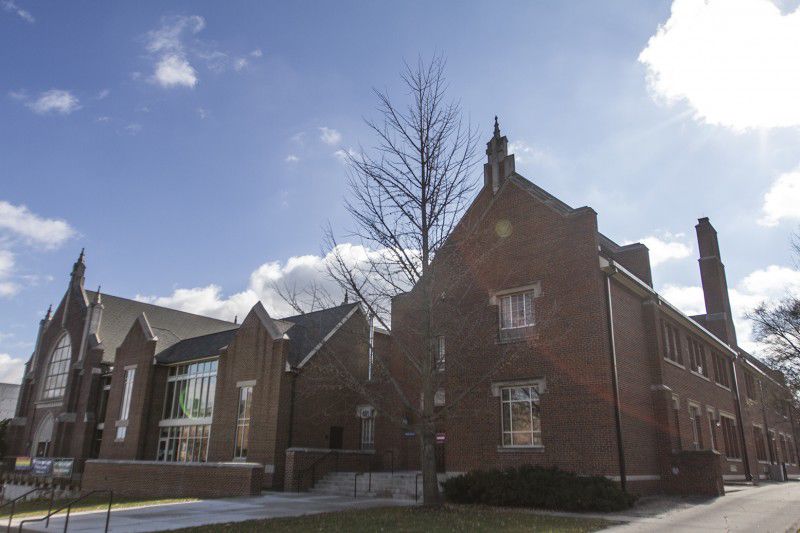Religious leaders speak up about recinding of DACA
September 20, 2017
Religious leaders flocked to Washington D.C. last week to protest in solidarity with undocumented immigrants throughout the U.S.
Rev. Erin Gingrich is an associate minister of social justice at Des Moines First Unitarian Church. She and 40 other ministers from across the country were invited to D.C. by the religious activist group Church World Services. Their shared goal: Protesting the DACA repeal.
DACA, or the Deferred Action for Childhood Arrivals, is an Obama era program for undocumented immigrants, specifically those who arrived in the U.S. before 16 years of age. Trump announced early in September an intention to phase out the program.
“Congress now has 6 months to legalize DACA (something the Obama Administration was unable to do). If they can’t, I will revisit the issue!” Trump tweeted September 5.
“We don’t want to spend more money on immigration,” Gingrich said. “[White Americans] can be proud of their immigration history, but Mexicans [and South Americans] can’t be… a lot of us can’t comprehend what these people go through.”
Gingrich and her fellow ministers staged protests Wednesday September 13. They talked with legislators and political leaders, such as House Minority Leader Nancy Pelosi. Some ministers even washed the feet of undocumented immigrants, a Judeo-Christian practice of respect and acceptance.
Gingrich brought with her approximately 300 letters from her congregation, all voicing opposition to the phasing-out of DACA.
“We brought the voices of lots of Iowans to the council,” she said.
According to Gingrich, the minister-protesters had three main objectives: “Defunding deportation,” dulling the detention policies of the Immigration and Customs Enforcement (ICE) and ending “military boarderization.” Gingrich claims dedicating vast resources to combat immigration is nonsensical.
Gingrich also claims the ever-changing immigration policy disproportionately affects minority groups. Mahjoob Jaily, an Imam at the Darul Arqam Islamic Center in Ames, has personal experience being a minority immigrant.
“As a recent immigrant, I could feel the difference between this administration and the previous administration… immigration has been made very, very difficult,” said Jaily, who immigrated to the United States from Sudan in 2014.
He contrasted his experience with more recent immigrants, saying the process takes longer and makes it harder for immigrants to bring their families with the Trump Administration.
“This is a bit distorting of the American image to foreign nations,” Jaily said.
Gingrich believes democratic displays of opinion are integral to religious freedom. Tim Gossett, the seminary-trained director of discipleship for Collegiate United Methodist Church in Ames, wholeheartedly agrees.
“Our clergy should be out in public… they should be visiting legislators,” said Gossett, insisting religious leaders should be vocal about any issue “that affects the poor and vulnerable.” According to Gossett, this includes such issues as health care and climate change.
“It’s critical for the clergy to be at the forefront of climate change activism, so we can promise everyone a liveable habitat for generations and generations,” he said.
Gingrich believes the immigration issue is really an issue of white supremacy, and hopes to use her “white identity” to further the pro-immigration agenda.
“Our [White American] realities aren’t challenged. We have the money, school, safety and jobs we need… Race is just a construct, but it affects our lives,” she said.
Gingrich also said such adamant protesting changed her outlook looking forward.
“I have more hope for change than I did in the past,” she said.







